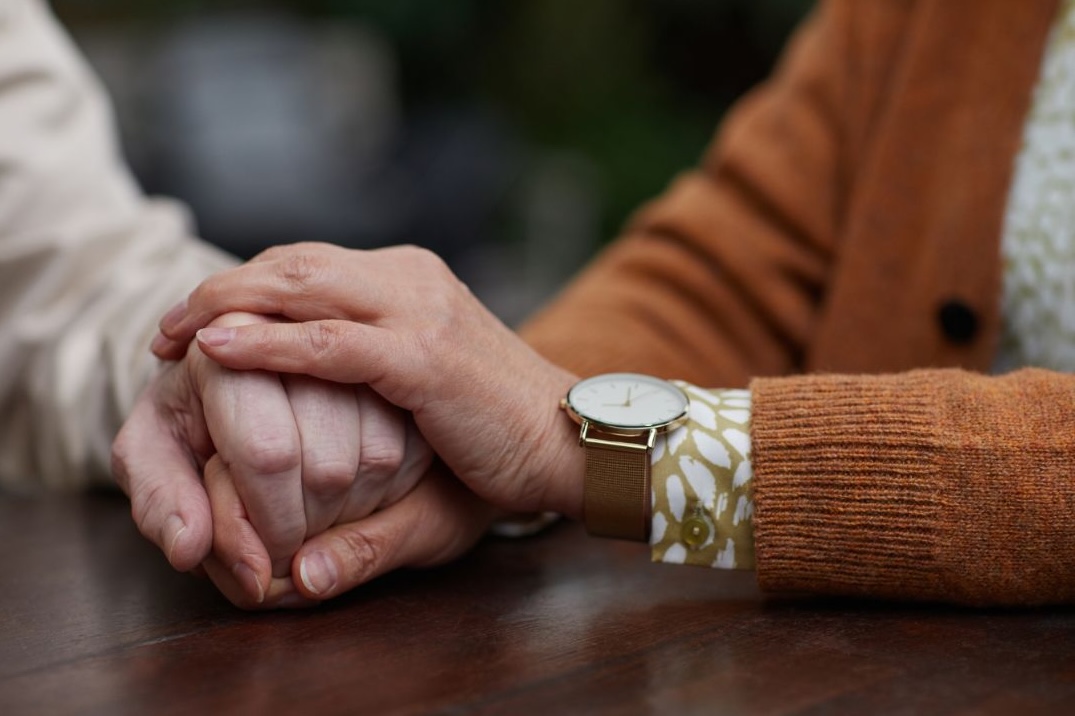Susan Jardine, from Preston, Lancashire is a carer for a gentleman called James, who lives with urinary incontinence. James is very passionate about sharing his story and has given permission to Susan to write about his experiences.

James is autistic and has dementia, which is why I am helping him to tell his story
“I am the carer for a gentleman who has incontinence issues. He is now nearly 72 but has had issues for most of his life. For background purposes, I have known James for 50 years. We were married for 29 years and have been divorced for 18 years. He is the father to our two sons and I have been his carer for the past 8 years now. James is also autistic and has dementia, which is why I am helping him to tell his story.
“On a daily basis, I help James with any shopping he needs, we go for coffee as a social outlet, I make most of James’ meals from scratch for his freezer and I also help him with any admin, attend medical appointments with him in case he gets confused and I can be there to explain, and just about anything else that pops up that he may need help with.
James told me about his urinary problems but felt ashamed
“In the early days (back in the early 70s), James told me about his urinary problems but felt ashamed. He would relate stories of when he wet the bed as a teenager, getting up in the night to change his bed and wash himself, thinking that his mother would not notice, but of course she did.
“He lived in fear of ‘relieving’ himself when out, a problem that he appeared to have no control over at times. We were unable to stay away from home in case he wet the bed – a fear that was forever in his mind. James would worry over what people would think and if they found out, would they tell others about his condition, and would they then ridicule him It was a situation that not only made him feel uncomfortable but was literally taking over his life.
He was later diagnosed with a lactose intolerance
“It was realised that he had a problem digesting cow’s milk and he was later diagnosed with a lactose intolerance. With adjustments to James’ diet, such as cutting back on tea and coffee as well as dairy, he was not as desperate to get to a toilet.
“James is on the autistic spectrum and has been diagnosed with dementia, and with this he has an increased incidence of requiring the toilet in a hurry. James experiences urinary urgency and frequency and struggles to tell when he really needs to go to the toilet.
Wearing incontinence pants is a safeguard
He was, at first, very reluctant to use incontinence pants as those thoughts came back to him of the past when he was desperately trying to cover up his ‘dilemma’, as he saw it, but he now understands that it is much better to wear them for his own convenience. Wearing the pants is a safeguard and he is grateful that any ‘mishaps’ he may have can avoid any embarrassment he may feel.
He can leave his home without worrying
“Fortunately, what was once classed as a ‘shameful issue’ is now better understood and is not as taboo as it was once thought of and if this was discussed more often, maybe people would have a better understanding and not be judgmental. It is a medical condition after all.
“With his incontinence wear, a key for the accessible toilet and knowing where toilets are situated is a massive plus and means he can leave his home without worrying about what might happen.
“I hope this story may help others to better understand incontinence issues.”
By James and Susan opening up about their story, it highlights how many people feel shame around having a bladder or bowel condition. We aim to help people break this negative feeling by encouraging them to talk to others about their medical condition, which is why we have a closed Facebook group where you can connect and talk to others who have similar experiences.
Further Information
If you are struggling, there are ways to help you recover from your feelings of shame.
- Become aware of how you talk to yourself. Try to observe your own thoughts but not react to them
- Have compassion for yourself. Everyone has their own issues
- Practice mindfulness
- Recognise when you’re feeling shame
- Seek support
You can get support by contacting your GP or in an emergency call 111 who can put you in contact with your local crisis team.
We thank Susan and James for sharing their story and we recognise that caring for someone can be a difficult role. If you are a carer and feel that you need support, Carers UK has a list of local groups and services.
We also have more information about bladder conditions and incontinence on the bladder hub on our website. You can also apply for a Just Can’t Wait card as a free download to your Smartphone, which can be used as a discreet indicator that you may need to use the toilet in a hurry if you’re out and about.
